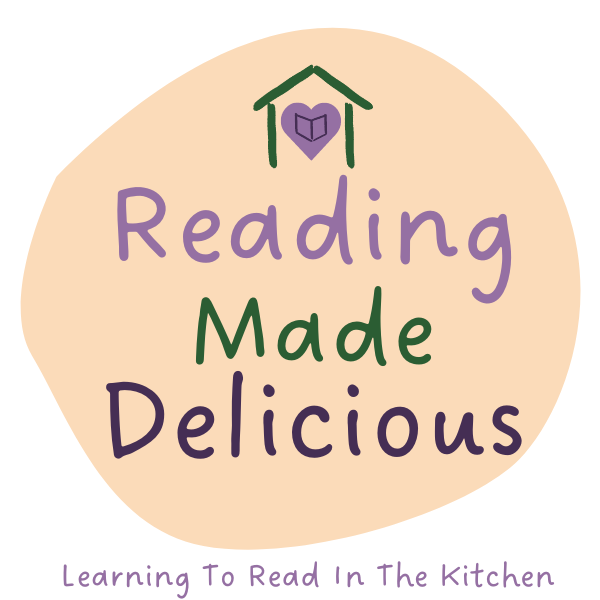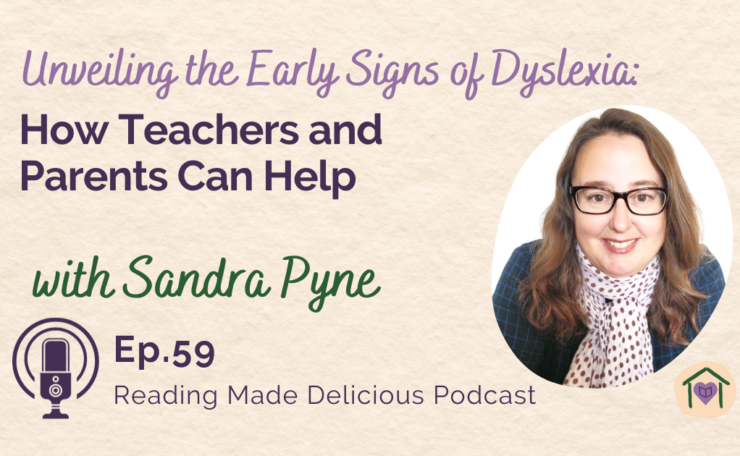How can I help a dyslexic child?
Apple Podcasts – Spotify – Amazon Music – Google Podcasts
Dyslexia is a learning difference that affects the way people process and interpret language. It can make reading, writing, and spelling more challenging for individuals. Recognizing the signs of dyslexia early on can be crucial in providing appropriate support and intervention.
In this episode with Sandra Pyne from Jigsaw Phonics Tutoring, we will delve into the early signs of dyslexia and explore how both teachers and parents can help children with dyslexia thrive in their learning journey.
Being a dyslexia specialist and mother of a dyslexic child, Sandr provides insights into early signs of dyslexia. She overlaps these insights with specific challenges faced by bilingual children along with ways to help them learn in their unique environment.
We also talk about her tutoring system, assuring teachers the ease of implementation, and encouraging them to start their own tutoring service with a determined mindset emphasizing on seeking help when needed.
In this episode about dyslexia, especially for bilingual learners:
Understanding Dyslexia:
Working memory plays a vital role in learning, and often, dyslexic children may struggle with it more than their peers. For example, they may have difficulty holding multi-step processes in memory, making it challenging to follow instructions. Additionally, dyslexic students may experience sequencing and ordering difficulties, which can manifest in activities like walking down stairs or organizing thoughts. It is important to note that dyslexia is not caused by being bilingual or multilingual; rather, it is often related to lower working memory or dyslexia itself.
Early Signs of Dyslexia:
Recognizing the early signs of dyslexia can help parents and teachers provide the necessary support to children. Here are some signs to look out for:
1. Family history: Dyslexia often has a genetic component, so a family history of reading or writing difficulties may indicate a higher likelihood of dyslexia in children.
2. Language development delay: Children with dyslexia may have slower language development, taking longer to learn words or understand spoken language.
3. Motor skills difficulties: Dyslexia can co-occur with dyspraxia or developmental coordination disorder. Children may struggle with gross motor skills, such as coordination and balance.
4. Working memory challenges: Dyslexic students often have weaker working memory, making it challenging to remember instructions or multi-step processes.
Support for Bilingual and Multilingual Children with Dyslexia:
Being bilingual or multilingual does not cause dyslexia. Children with dyslexia can learn multiple languages proficiently, albeit with some additional support. Here are some tips for parents of bilingual or multilingual children with dyslexia:
1. Provide a supportive environment: Ensure that your child feels comfortable speaking both languages at home and school. Encourage them to embrace their multilingualism without feeling confused or inadequate.
2. Consider the social aspect: Children may feel self-conscious about speaking a different language or being perceived as different among their peers. Understand and address any social pressures that may arise.
3. Focus on language development: Monitor your child’s language development and seek professional help if you notice any delays. Addressing language difficulties early on can prevent them from progressing into reading and writing challenges.
If you are looking to support children learning to read as an educator we also discussed:
Jigsaw Phonics, for example, offers a structured and cumulative phonics program designed specifically for tutors to use. This program focuses on building foundational reading skills through systematic instruction and regular practice. By following a structured and proven approach, phonics programs can help children with dyslexia catch up and even surpass age-level reading expectations.
Starting a Tutoring Business:
For teachers interested in helping children learn to read outside the classroom setting, starting a tutoring business can be a rewarding endeavor. Sandra suggests a few key steps for those considering this path:
1. Develop a business mindset: Believe in your ability to make a difference and overcome any doubts or concerns. Success in tutoring is largely about mindset and confidence in your skills.
2. Seek help and support: Don’t hesitate to reach out for guidance and advice, whether through professional tutoring programs or your network of experienced educators. Having someone mentor you through the tutoring business journey can be invaluable.
3. Just get started: There is no perfect time to embark on this new venture. Take the leap, start offering your services, and build your tutoring business gradually. Remember that progress may come in a steady stream rather than an immediate rush.
More about Sandra
Sandra Pyne is a veteran international teacher, tutor, dyslexia specialist, and co-founder of Jigsaw Phonics Tutoring. After exiting the classroom herself after a long teaching career, she now helps passionate (but usually exhausted) phonics teachers and early literacy educators to set up their own tutoring businesses.
On her mission to help children to read – one she shares with all the educators in her membership – she has found the parallels between education and business have helped her in her own business journey. And they are helping her members to lean into their transferable skills – ones they often didn’t realize they even had – to become successful tutoring business owners. So we are going to hear all about how it’s possible as a teacher to have more income, impact, and fulfillment as a tutor, both in the UK and globally.
Links mentioned in this episode about dyslexia and educators supporting learning to read in different ways:
Jigsaw Phonics Tutoring Membership
www.facebook.com/jigsawphonicsmembership
Reading Made Delicious Resources to help support you
- Download the ultimate guide to using recipes for learning to read and get started with helping your child create memories whilst learning to read today.
- Check out the latest Reading Made Delicious recipes and reading support here
Join our Reading Made Delicious Podcast Community to grow your child’s reading and early learning:
Send me a DM on Instagram. I love chatting with families (and other educators). So send me your thoughts on supporting learners with dyslexia or starting your own phonics tutoring business.
Enjoying the podcast? Thanks for tuning in!
Tag me @reading_made_delicious on Instagram and tell me what you are listening to! I love seeing what resonates most with our listeners!
I don’t want you to miss a thing! Be the first to know when an episode is available by subscribing to your favourite player here Apple Podcasts – Spotify – Amazon Music – Google Podcasts
If you would like to support the Reading Made Delicious Podcast, it would mean so much to me if you would leave a review on iTunes. By leaving a review, you are helping more families to find this and help support their child’s learning journey.
To leave a review on iTunes, click here and scroll down to ratings and reviews. Click ‘write a review’ and share with me how this podcast is helping you grow your child’s learning.
Ready for more? Listen to these Reading Made Delicious Podcast Episodes next:
- Does my child have dyslexia? (Ep. 19)
- Understanding Dyslexia: Debunking Myths with Lisa Parnello (Ep 32)
Content Disclaimer
The information contained above is provided for information purposes only. The contents of this episode are not intended to amount to advice and you should not rely on any of the contents of this podcast. Professional advice should be obtained before taking or refraining from taking any action as a result of the contents of this podcast. Sarah Travers disclaims all liability and responsibility arising from any reliance placed on any of the contents of this episode.

